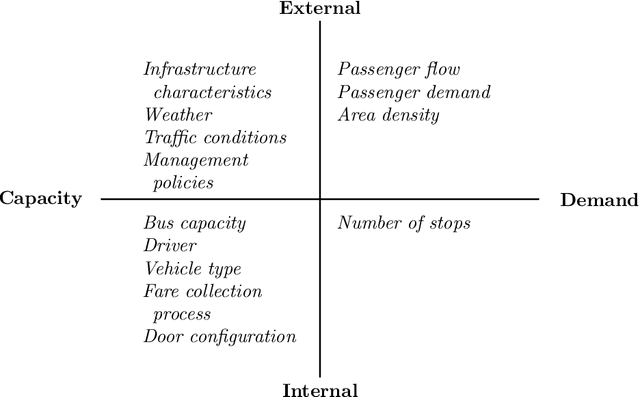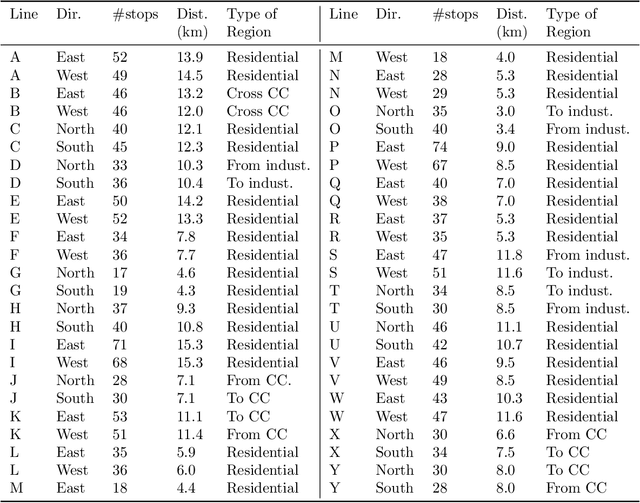Predicting the probability distribution of bus travel time to move towards reliable planning of public transport services
Paper and Code
Feb 03, 2021



An important aspect of the quality of a public transport service is its reliability, which is defined as the invariability of the service attributes. Preventive measures taken during planning can reduce risks of unreliability throughout operations. In order to tackle reliability during the service planning phase, a key piece of information is the long-term prediction of the density of the travel time, which conveys the uncertainty of travel times. We introduce a reliable approach to one of the problems of service planning in public transport, namely the Multiple Depot Vehicle Scheduling Problem (MDVSP), which takes as input a set of trips and the probability density function (p.d.f.) of the travel time of each trip in order to output delay-tolerant vehicle schedules. This work empirically compares probabilistic models for the prediction of the conditional p.d.f. of the travel time, as a first step towards reliable MDVSP solutions. Two types of probabilistic models, namely similarity-based density estimation models and a smoothed Logistic Regression for probabilistic classification model, are compared on a dataset of more than 41,000 trips and 50 bus routes of the city of Montr\'eal. The result of a vast majority of probabilistic models outperforms that of a Random Forests model, which is not inherently probabilistic, thus highlighting the added value of modeling the conditional p.d.f. of the travel time with probabilistic models. A similarity-based density estimation model using a $k$ Nearest Neighbors method and a Kernel Density Estimation predicted the best estimate of the true conditional p.d.f. on this dataset.
 Add to Chrome
Add to Chrome Add to Firefox
Add to Firefox Add to Edge
Add to Edge